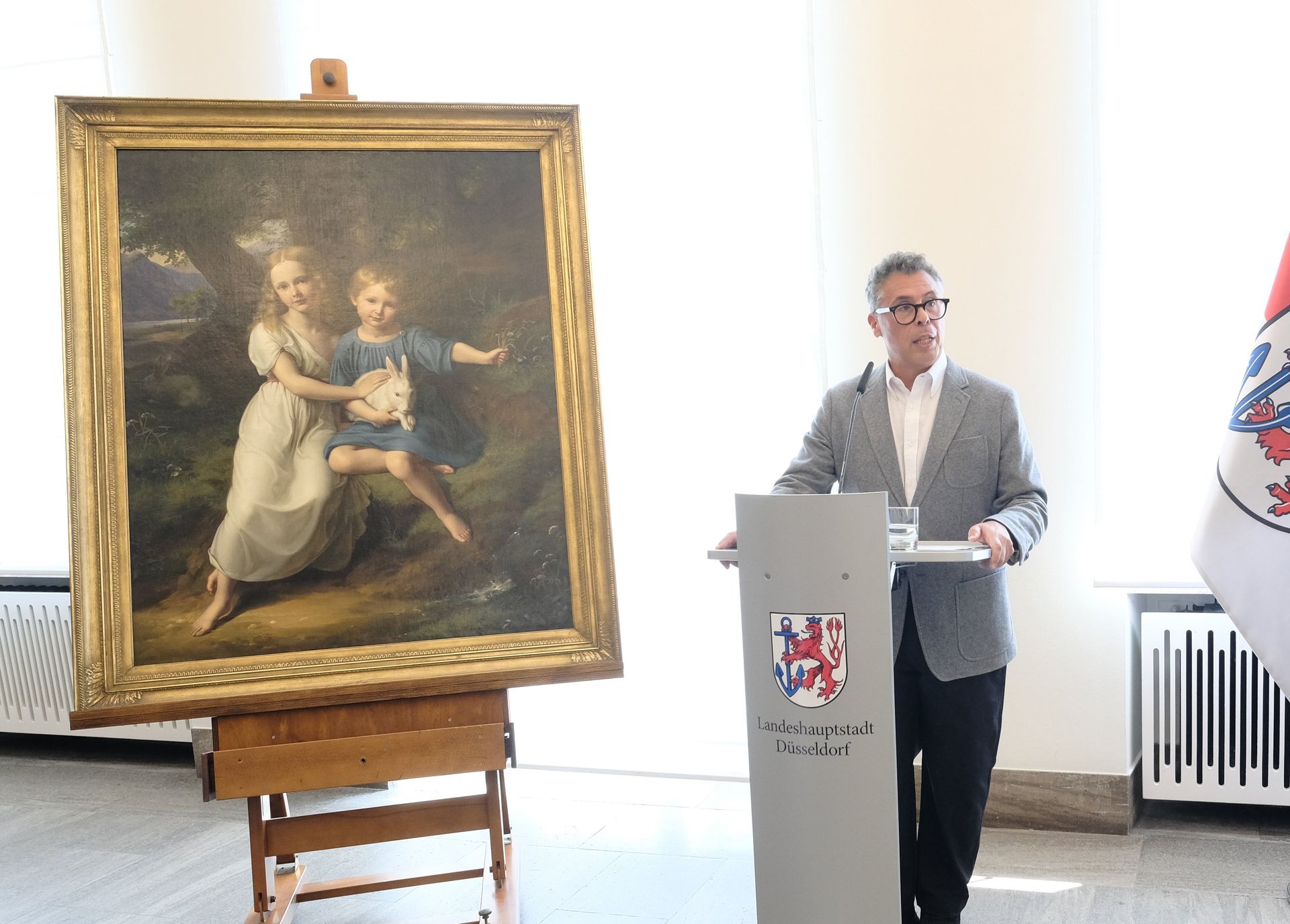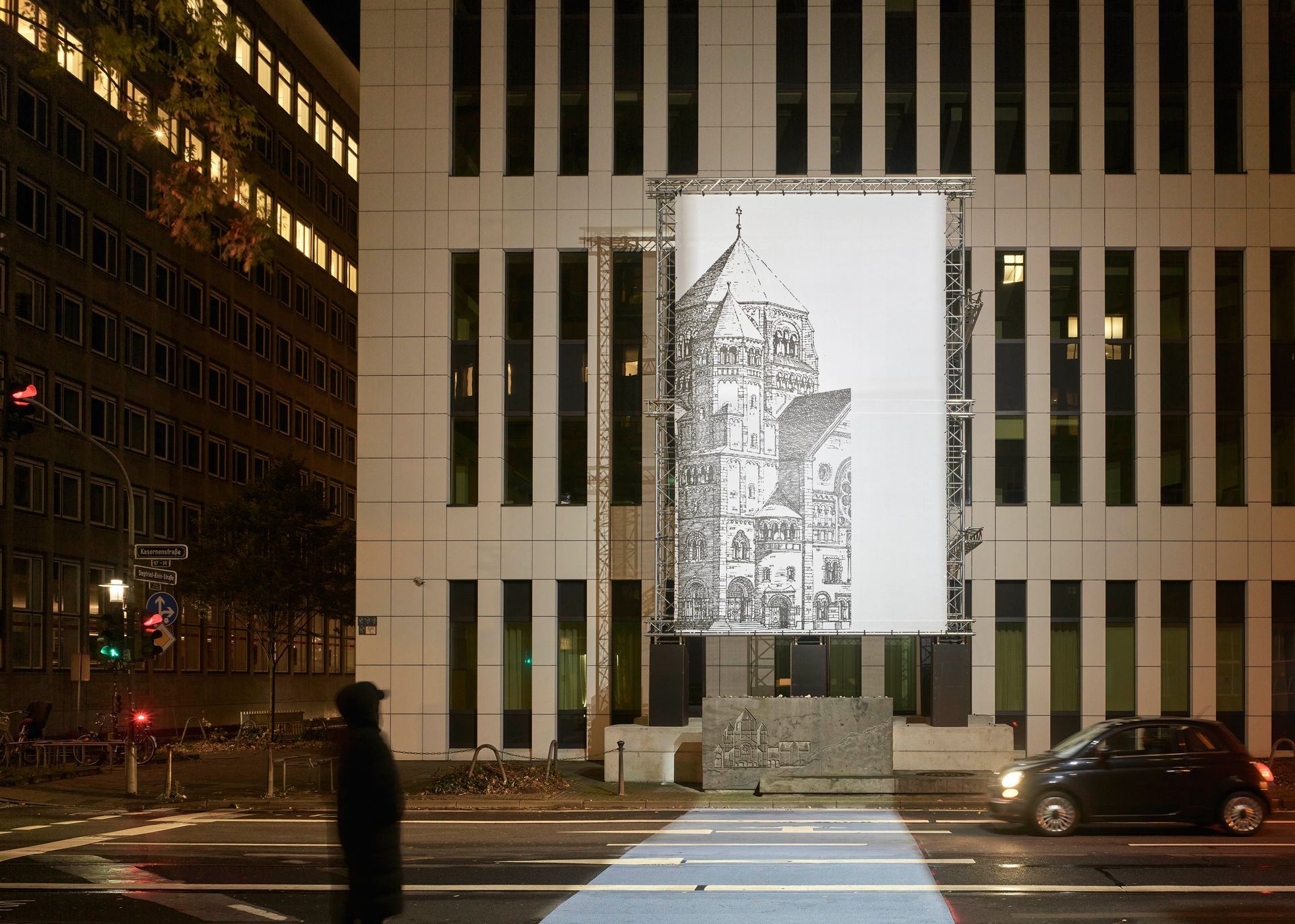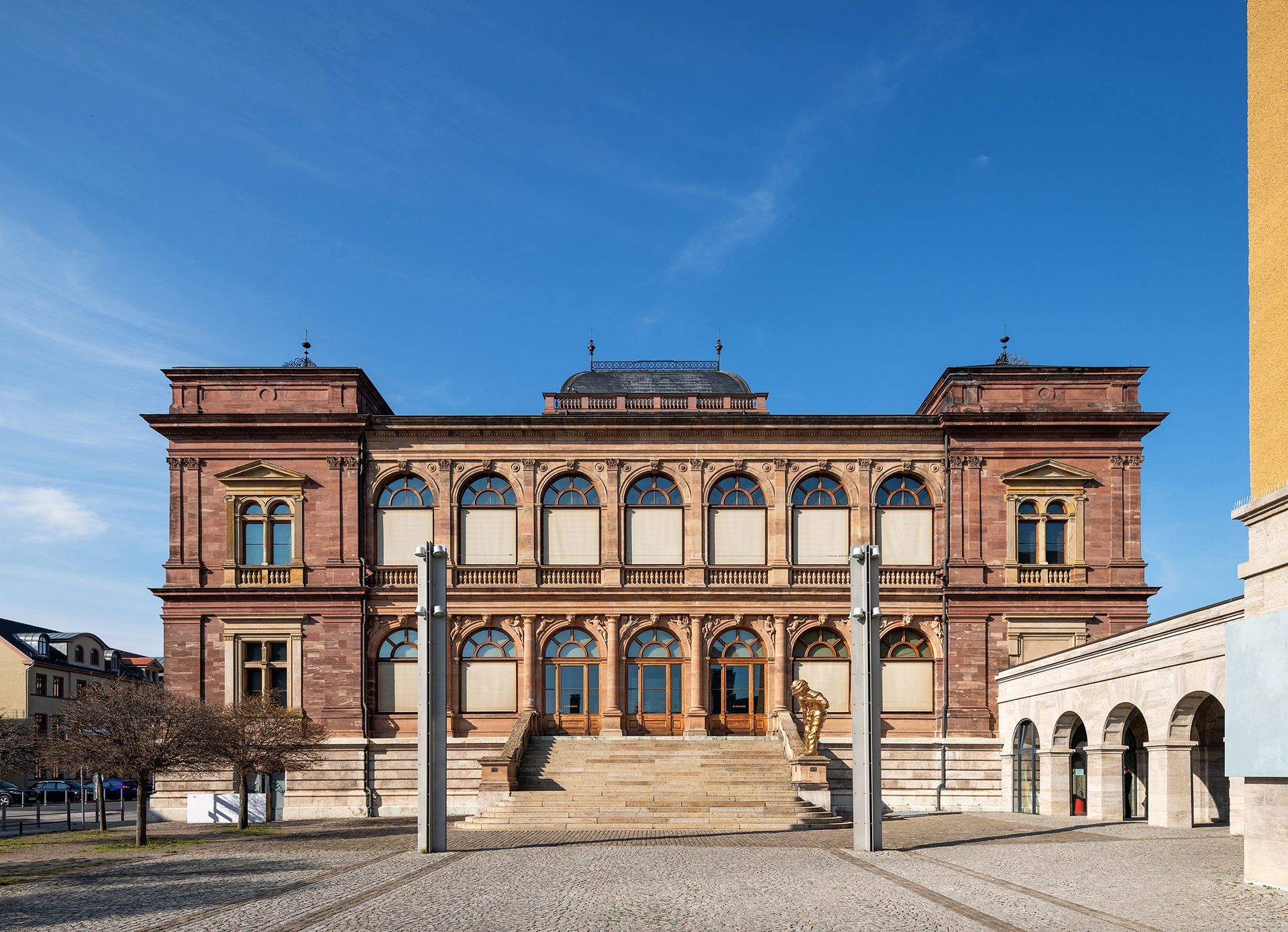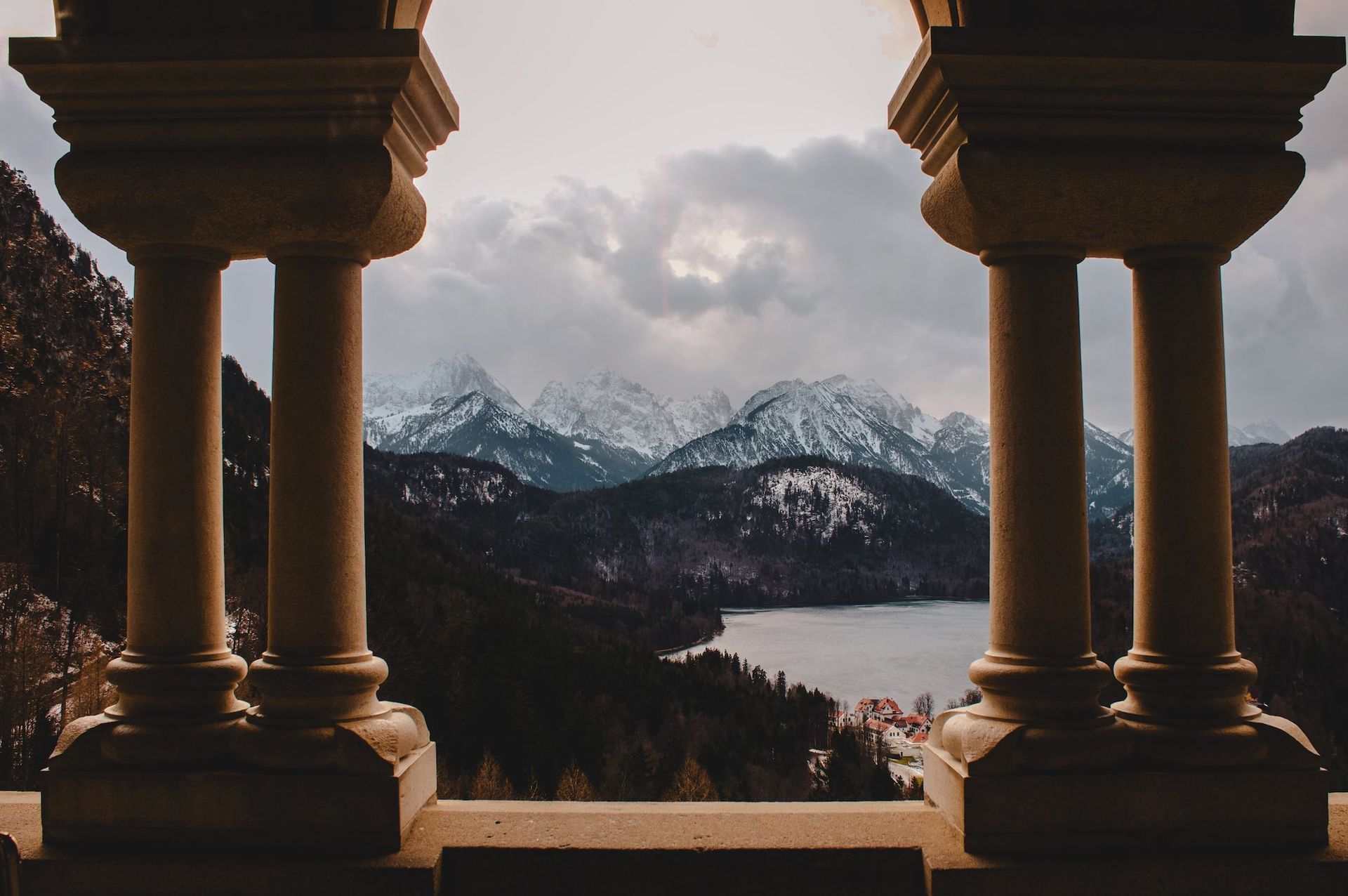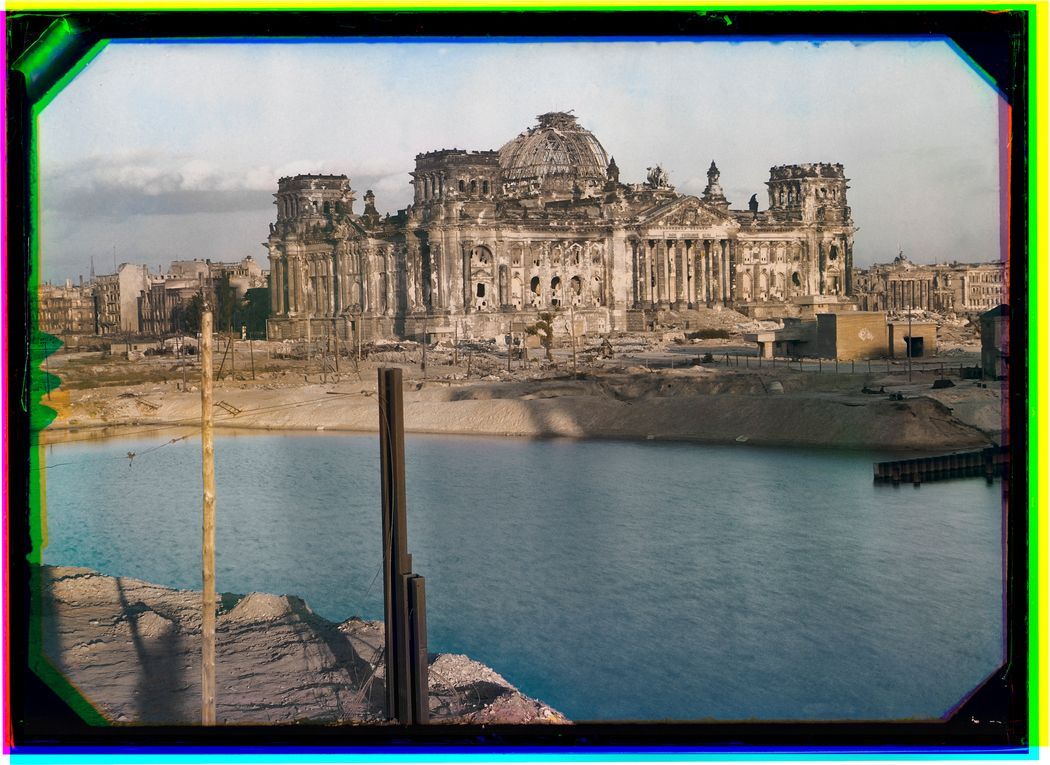
Dr Robert Lackner: “Perl's incredible courage and his determination to never give up impressed me."
The interview was given in German. Free translation by the editors.
2024 marked the 79th anniversary of the end of the Second World War in Europe. The heroes of D-Day were honoured in what was probably President Macron's last major ceremony and the 80th anniversary of the German resistance was commemorated in many events. Other heroes of that time are honoured in books or in the entertainment industry, especially in Hollywood, just think of Steven Spielberg's Oskar Schindler. Obviously, it is only then that their incredible deeds become known to an audience of millions.
The breathtaking life story of the young Viennese lawyer Willy Perl, later William R. Perl, is unknown to many people. This book could change that: How a Young Lawyer Saved Thousands of Jews: the Adventurous Story of Willy Perl’, written by Austrian historian Dr Robert Lackner. On the eve of the Second World War, Viennese lawyer Willy Perl set in motion a plan to save thousands of Jews from Central and Eastern Europe from the Holocaust - over 40,000 Jews by his own account. It was a plan that - incredibly, but demonstrably - initially met with the approval of Adolf Eichmann, then an SS officer in Vienna. Perl offered the German officer to make Vienna ‘judenrein’ (clean of Jews) by having the Jews emigrate - a plan that seemed to the German to be the best solution.
Although he had been arrested by the Gestapo and the SS in the meantime, Perl organised secret refugee transports via the ‘reverse’ Balkan route to the then British Mandate of Palestine with the help of Greek smugglers and saved tens of thousands of Jews from Central and Eastern Europe from the Holocaust. Perl later worked for the US government as a soldier and interrogation expert, at Camp Richtie and finally as a psychologist and university lecturer. Lackner, who was also in contact with Perl's family, traces these dramatic years in Perl's life in detail. An important piece of contemporary history that is brought back to life in this book. Stories like that of the lawyer Willy Perl must never be forgotten.
————-
29. September 2024
‘When I held his estate in my hands for the first time and saw what else this man had done, I realised that I had to take a closer look.’
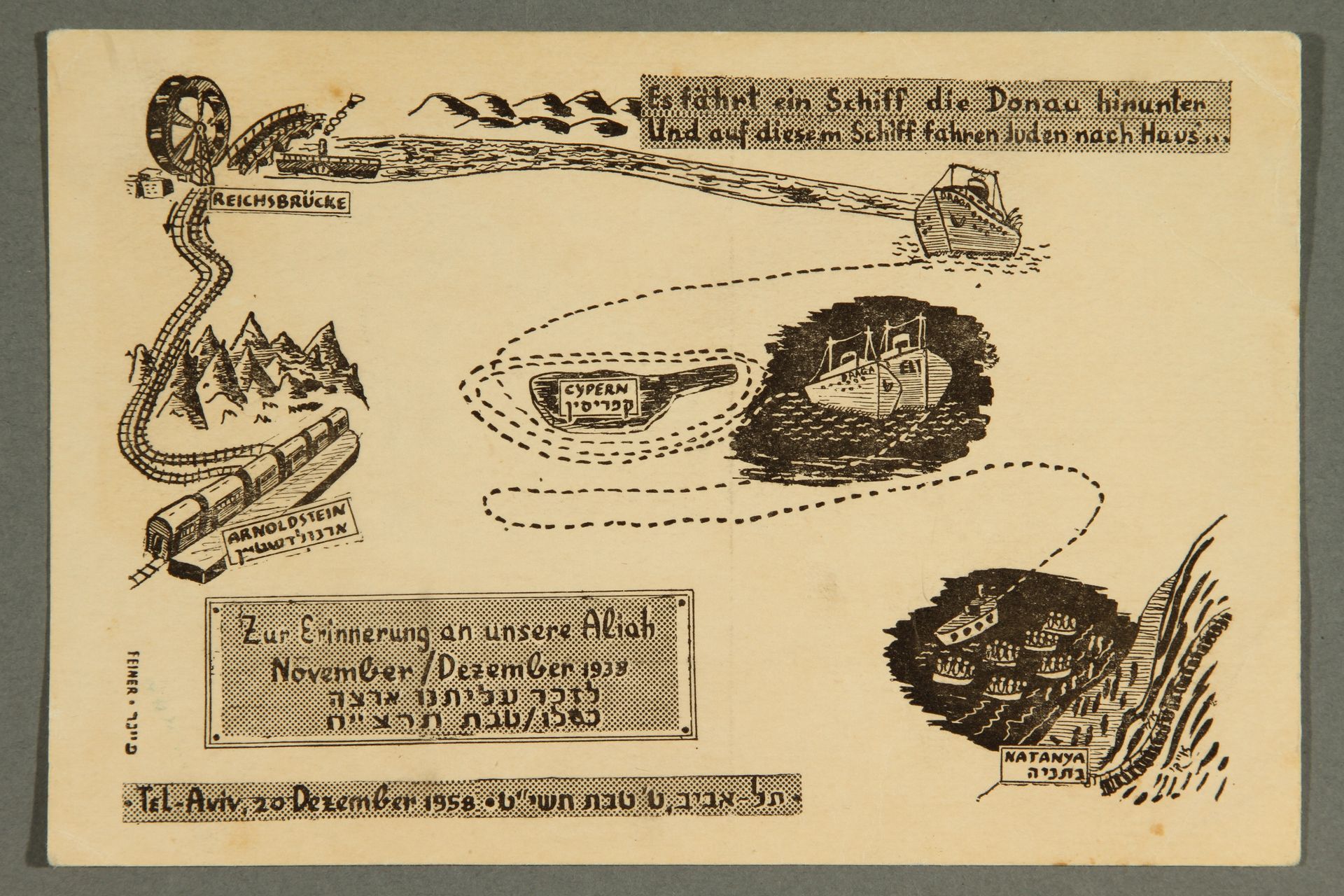
Postcard commemorating the 20th anniversary of Draga and Eli's journey in 1938 - Credits USHMM
Dr Lackner, how do you know that the meeting between Adolf Eichmann and William R. Perl took place in exactly the same way? Were you able to speak to contemporary witnesses or how exactly did you reconstruct his story?
We know about Eichmann's interrogation because Perl describes it in detail in his memoirs. Of course, this is by no means proof that the situation happened exactly as it did. This also applies to other, sometimes seemingly film-like experiences that Perl himself describes. What is essential, however, is that there is evidence for most of them in other sources. In order to reconstruct Perl's story, I have used various materials, mainly from archives in the USA, Great Britain and Israel. These include, for example, contemporary correspondence between Perl and friends and fellow campaigners, but also documents from the ‘other side’ such as detailed correspondence and reports from British officials, diplomats and police officers who were concerned about Perl's transports to Palestine. The British administered the region as a so-called mandate for the League of Nations and wanted to limit the influx of Jews due to tensions with the Arabs. In this respect, Perl's endeavours are quite well documented in the British National Archives in London. Perl's estate is in the library of a university in Washington - a veritable biographical treasure trove.
Why did Eichmann reject Perl's plan to make Vienna ‘Judenrein’ after all?
Perl himself provides an answer to this question in his memoirs, and it seems entirely plausible: his proposal was to transport the Jewish population of Vienna to Palestine, unnoticed by the British, who considered these transports illegal because they took place against their will. Eichmann, however, did not want a ‘criminal centre’ in Palestine, as he called it, for whatever reason. He preferred to ‘atomise’ the Jews, by which he did not mean their complete annihilation, but rather their scattering in all directions. At least that is how Perl interpreted these words.

Courtesy Estate of William R. Perl
‘But in general, one thing you can certainly take away from Willy Perl's fate is his incredible courage and his determination to never give up. That impressed me.’
How exactly did you find out about the fate of William R. Perl? Why do you want to stand up for him? Do you also have contact with his family?
I came across Willy Perl when I was researching another book in Washington. It was about Austrians who had fled and were trained by the US Army in a top secret camp during the Second World War. Perl, who had gone to the USA in 1940 after his time as an escape helper, also ended up in this camp. At first I was only interested in his experiences as a US soldier, but when I held his estate in my hands for the first time and saw what else this man had done, I realised that I had to take a closer look. A few years passed, but eventually I got down to work and got in touch with one of his sons. He provided me with some wonderful photos of his parents for my book. Incidentally, it is not just Willy Perl who experienced and did incredible things. His wife Lore, whom he only married after the Anschluss of Austria to the German Reich, was not Jewish, but ‘Aryan’, making their relationship a serious crime. But that was not all: Lore Perl later hid and supported Jews threatened with deportation, was denounced by a neighbour, arrested by the Gestapo and imprisoned in Ravensbrück concentration camp. The fact that she and her husband met again in bombed-out Vienna after the end of the war is nothing short of a miracle. And to your question about why I want to stand up for Willy Perl: I don't think I do, nor does he need me as an ‘advocate’. I just wanted to tell this story because I find it incredibly exciting and moving. Lessons from the past are always a tricky thing - how much you can really learn from history is a controversial issue among historians. But in general, one thing you can certainly take away from Willy Perl's fate is his incredible courage and determination to never give up. That impressed me.
‘For many people, Perl was probably actually a kind of shining light because he had the power to allocate them a place on one of his transports, basically deciding over life and death.’
Do you think the term ‘Moses of the Holocaust’ is appropriate?
I don't think that's an accurate description, and Perl never called himself that. It is merely part of the title of an unpublished biography by two authors who conducted extensive interviews with him and his wife Lore in the 1990s. They simply came up with a few lurid catchphrases that totally glamorise Perl. They imply that he led the Jewish people threatened by the National Socialists from Europe to Palestine, just as Moses once led the Israelites from Egypt to Canaan according to the Bible. The comparison is completely flawed, of course it wasn't like that. However, one thing has to be said: for many people, Perl was indeed a kind of shining light because he had the power to allocate them a place on one of his transports and thus basically decided over life and death. That was a tremendous responsibility, a tremendous burden that Perl had to bear. He describes this very impressively in his memoirs: he once had to leave a family behind because the mother was clearly suffering from an infectious lung disease and he could not risk infecting other passengers. His ships were usually packed with people, which could have ended in disaster. In short, Perl was certainly someone who sometimes impressed others with what he did. But he wasn't a prophet.
‘But Spielberg didn't make a big feature film about Perl. It probably needs one to achieve international fame.’
Why do you think the story of Oskar Schindler is better known in the media than that of William R. Perl?
The story of Oskar Schindler has become world-famous because of the film adaptation by Steven Spielberg, although the film itself is based on a book by the Australian author Thomas Keneally. I can't say how many people knew about Schindler before the film - apart from the people he rescued and historians. I think it's similar with Perl. His name is also familiar to the people who were able to get to Palestine thanks to him, and perhaps their descendants, as well as researchers on the subject. Otherwise, his deeds are rather unknown, although he has been honoured for them several times: in the United States by President Ronald Reagan and by the Senate, in Israel and in 1990 also by the City of Vienna. And it is interesting to note that Spielberg and Perl knew each other; there is even a photo of the two of them together. However, Spielberg did not make a major feature film about Perl. Such a film is probably needed to achieve international fame.
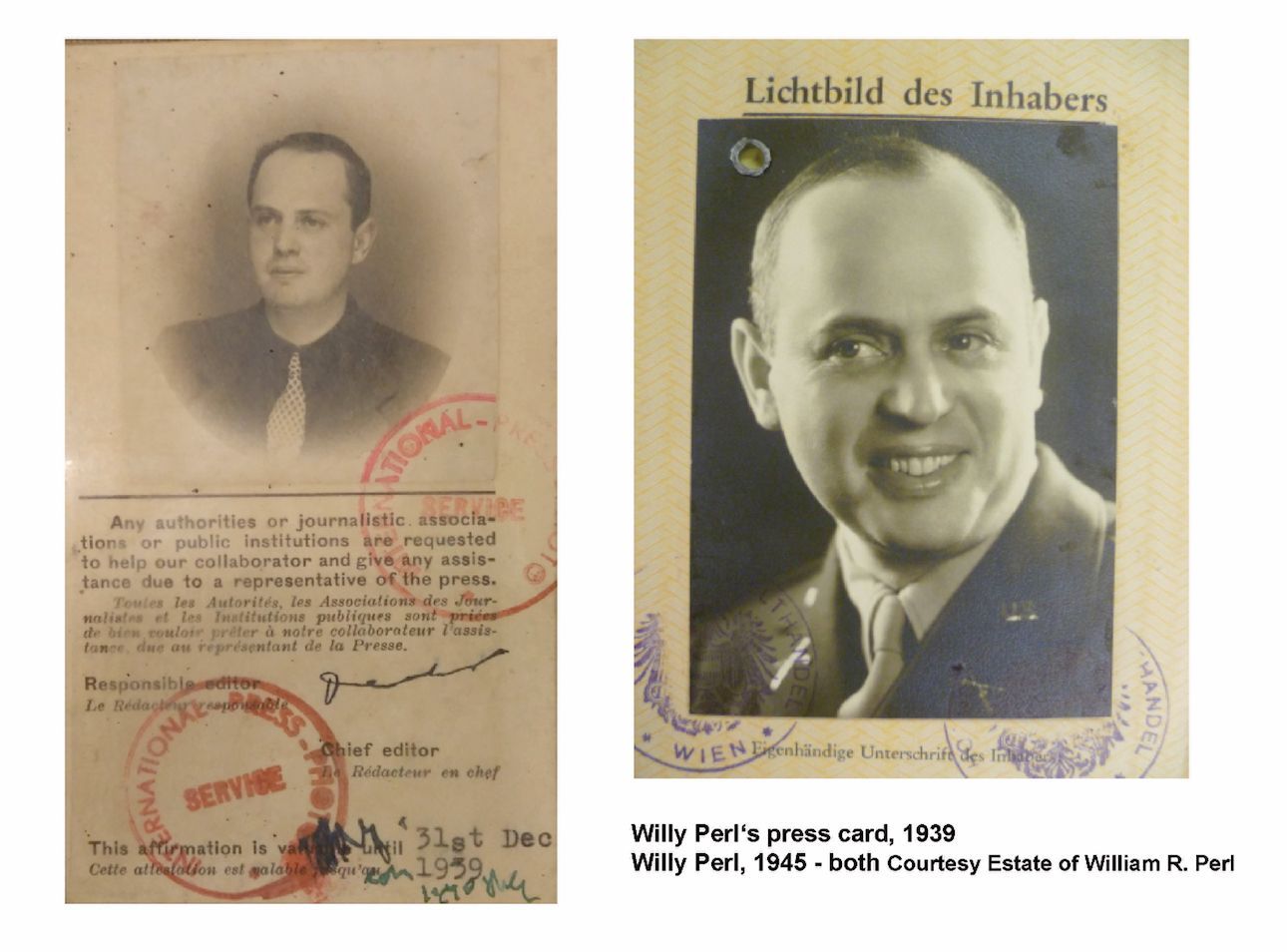
Courtesy Estate of William R. Perl
What role do the books that Perl later published play?
Perl had many roles in his long life - he was 92 years old and lived through almost the entire 20th century: first a lawyer, then an escape helper, later a soldier and interrogation expert, and finally a psychologist and university lecturer. After retiring, he looked for a new role - and found one as an author. He wanted to process what he had experienced, especially in the years 1936 to 1940, and it was important to him to portray things as he believed they had happened. What is striking is that he took this task very seriously, not limiting himself to simply writing down his memories, but carrying out extensive research. He made contact with former companions, sifted through notes, letters and official documents from the time and scoured archives and libraries, including the British National Archives. He wanted to know what was really in the contemporary written sources. Because, and this emerges from a letter to a friend, he fully realised how deceptive human memory can be. He had learnt this as a lawyer, for example when witnesses described the same incident differently after just a few hours. His books are therefore incredibly meticulously researched and, above all, immensely detailed - so much so that the publisher even had to shorten some of them before publication due to their length. However, they were far less recognised by the public than Perl had hoped. I think that affected him too - as would be the case with any author.
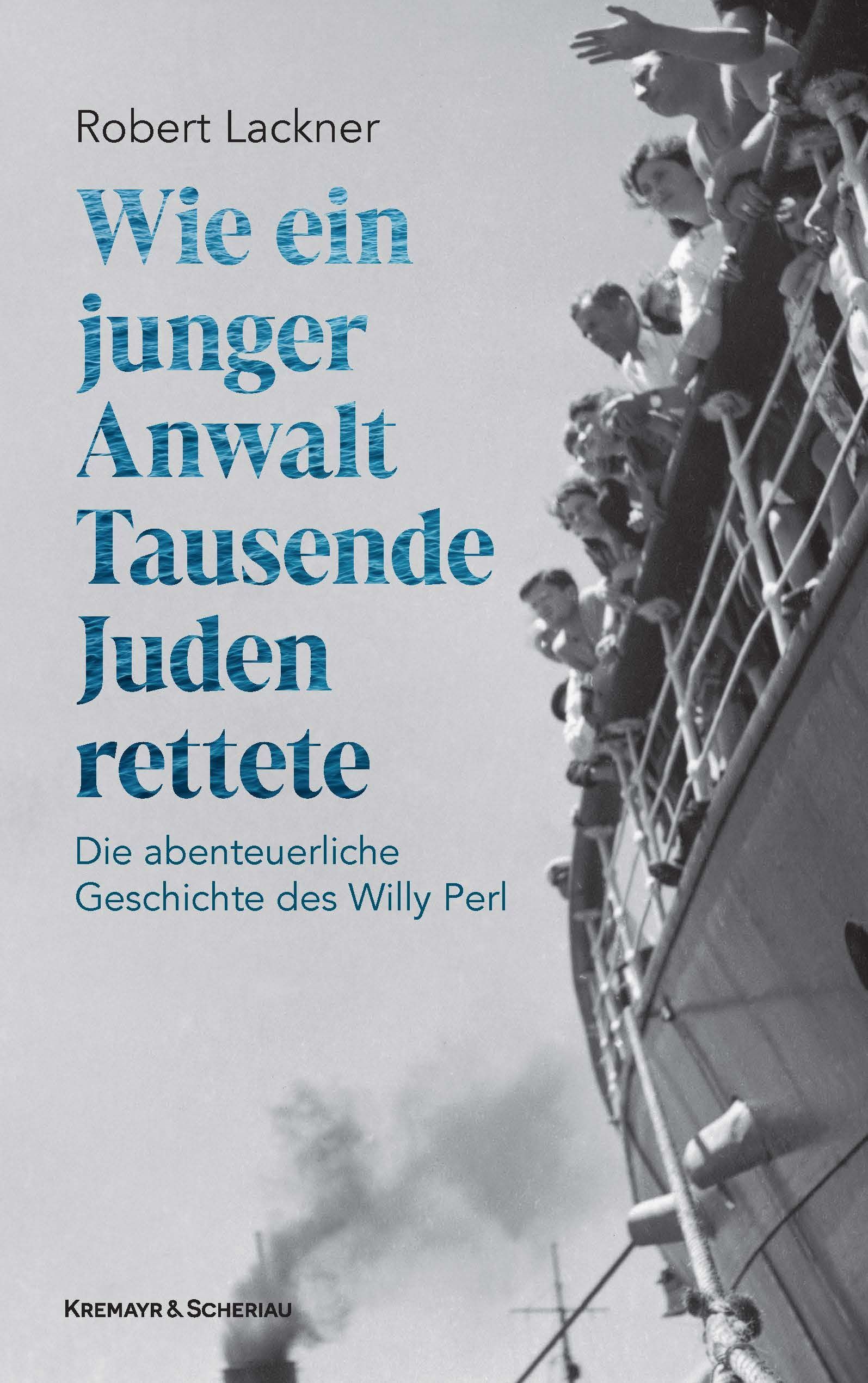
Book Cover Dr. Robert Lackner ©Kremayr & Scheriau
TOP STORIES
ENVIRONMENT
007: Who is Paul Watson and why was he arrested?
_____________
FREEDOM OF SPEACH
Julian Assange und die Pressefreiheit. Eine kleine Chronik (DE)
_____________
DÜSSELDORF OPERA
The surprising switch of course
_____________
PHOTOGRAPHY
Without censorship: World Press Photo publishes the regional winners of the 2024 photo competition
_____________
FLORENCE
_____________
April 2024
DÜSSELDORF
Controversy surrounding the Düsseldorf Photo Biennale
_____________
WAR
March 2024
_____________
ISRAEL
November 2023
_____________
ENGLISH CHRISTMAS
10 years of Glow Wild at Kew Wakehurst.
October 2023
_____________
TRIENNALE MILANO
Pierpaolo Piccioli explains his fascination with art.
_____________
NEW MUSEUMS
29 May 2023
_____________
NEW MUSEUMS
is coming in big steps.The Bernd and Hilla Becher Prize will be awarded for the first time.
19 May, 2023
_____________
VISIONS, ARCHITECTURE
MARCH 10, 2023
_____________
CHECK THE THINGS YOU WANT TO THROW AWAY
HA Schult's Trash People at the Circular Valley Forum in Wuppertal on 18 November 2022.
NOVEMBER 19, 2022
_____________
THE OPERA OF THE FUTURE
Düsseldorf, capital of North Rhine-Westphalia will receive the opera house of the future.
FEBRUARY 15, 2023
_____________
FLORENCE
The extraordinary museums of Florence in 2023.
JANUARY 1, 2023
_____________
DÜSSELDORF
DECEMBER 11, 2022
RELATED TALKS
